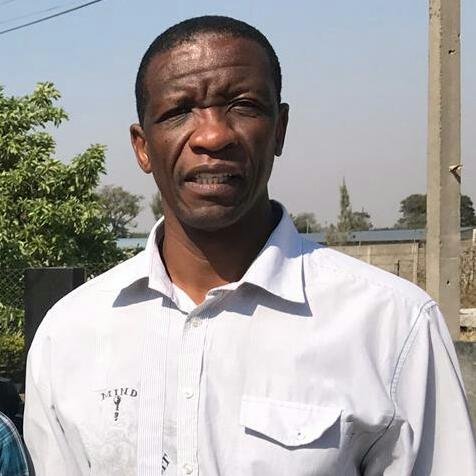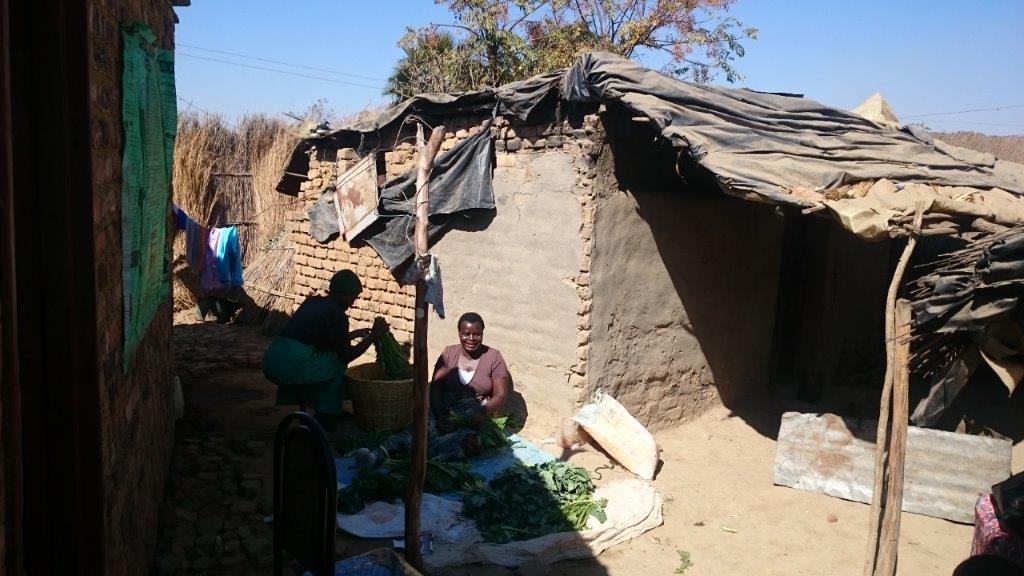Monday, 07 September 2020
Displaced people living in temporary settlements in Zimbabwe are to get help to protect themselves against COVID-19 in a new project led by education and sociology experts at the University of Nottingham.
It’s estimated that over 52,000 people in Zimbabwe1 are living as displaced persons in informal communities. Some of these people are former migrants or refugees who have no rural homes.
These communities have limited access to the usual health protection advice or equipment and are particularly at risk from the ongoing viral pandemic. Zimbabwe locked down early in the pandemic and closed its borders to visitors, but the health system is now under considerable pressure with rising infections due to rapid transmission in the community.

The Nottingham team is working with collaborators at Wolverhampton University, three universities in Zimbabwe2 and NGO National Age Network of Zimbabwe (NANZ), to complement the Zimbabwean government’s response to the pandemic. They will create locally developed, low-cost resources to boost public health awareness of the virus and give much-needed advice on how these at-risk communities can equip themselves with PPE and sanitisers.
The work has been funded through the UKRI’s GCRF/Newton Fund Agile Response call for COVID-19.
 Dr Juliet Thondhlana, School of Education
Dr Juliet Thondhlana, School of Education
Project lead, Dr Juliet Thondhlana, from the University of Nottingham’s School of Education, said: “Zimbabwe is a Southern African country which is among the latest countries in the African region to be affected by the COVID-19 pandemic. The number of infections is rising fast and the government has made mask-wearing compulsory, but for the displaced people living in these poverty-stricken temporary settlements such requirements are difficult to meet. Action is urgently needed to help these communities and we think this project will truly save lives in Zimbabwe as the pandemic progresses.”
The team will carry out extensive research to find out how much people living in the settlements know about COVID-19, the risks and preventions. Low-cost sanitisers and face masks developed at Zimbabwe Ezekiel Guti University will be rolled out in these areas along with a toolkit and training for households to make their own protective products. The project will also create a public health education programme to be disseminated through a variety of interactive communication channels.
Importantly, the team will produce guidance for relevant Zimbabwean government departments to encourage them to include the most vulnerable sections of the population in their public health policies in the future.
 Marck Chikanza, Director of the National Age Network of Zimbabwe
Marck Chikanza, Director of the National Age Network of Zimbabwe
NGO NANZ Director Mr Marck Chikanza said, “We’ve got a long-standing relationship with these informal communities and as the pandemic spreads they have reached out to us for support. We think this project will go a long way to save the lives of these communities.”
Two informal settlements will be the focus of the work – Mandebvu, 19km west of Harare and Epworth which is more urban and semi-formal community, 20km east of the city centre. Both settlements are densely populated with mainly mud-built structures housing an average family of 4 per room. These areas are particularly vulnerable because of a lack of basic amenities like clean running water, essential for hygiene.
 Informal settlement in Zimbabwe
Informal settlement in Zimbabwe
University of Nottingham Co-Investigator Dr Roda Madziva said: “Women in Zimbabwe are the most affected by the pandemic because culturally they are expected to care for their families including children, the elderly and the disabled.”
The University of Wolverhampton’s collaborator on the project, innovator Dr Moses Murandu added: “One example of a useful product available locally that can be adapted to form protection against COVID-19 is the balaclava. This type of headgear is commonly knitted by women in Zimbabwe as protection against the wind and cold during winter months. Balaclavas will be redesigned to incorporate nose and mouth filters as well as opening for ears to improve hearing.”

The project will also train people to produce re-usable, washable gloves and aprons to be used by carers. They will also be taught to make home-made detergents and soaps using locally available and affordable ingredients as well as foot-controlled pump dispensers for use in public areas such as communal toilets.
The work will take 18 months to carry out by which time the team believe their research and practical outputs will have a real and quantifiable impact on these vulnerable communities in Zimbabwe.
1 https://www.internal-displacement.org/countries/zimbabwe
2 Zimbabwe Ezekiel Guti University (ZEGU), University of Zimbabwe, Women’s University in Africa.
Story credits
For more information please contact Dr Juliet Thondhlana, School of Education, via email juliet.thondhlana@nottingham.ac.uk or Emma Rayner, Media Relations Manager on 0115 951 5793 or emma.rayner@nottingham.ac.uk
Notes to editors:
About the University of Nottingham
Ranked 24 in Europe and 15th in the UK by the QS World University Rankings: Europe 2024, the University of Nottingham is a founding member of Russell Group of research-intensive universities. Studying at the University of Nottingham is a life-changing experience, and we pride ourselves on unlocking the potential of our students. We have a pioneering spirit, expressed in the vision of our founder Sir Jesse Boot, which has seen us lead the way in establishing campuses in China and Malaysia - part of a globally connected network of education, research and industrial engagement.
Nottingham was crowned Sports University of the Year by The Times and Sunday Times Good University Guide 2024 – the third time it has been given the honour since 2018 – and by the Daily Mail University Guide 2024.
The university is among the best universities in the UK for the strength of our research, positioned seventh for research power in the UK according to REF 2021. The birthplace of discoveries such as MRI and ibuprofen, our innovations transform lives and tackle global problems such as sustainable food supplies, ending modern slavery, developing greener transport, and reducing reliance on fossil fuels.
The university is a major employer and industry partner - locally and globally - and our graduates are the third most targeted by the UK's top employers, according to The Graduate Market in 2024 report by High Fliers Research.
We lead the Universities for Nottingham initiative, in partnership with Nottingham Trent University, a pioneering collaboration between the city’s two world-class institutions to improve levels of prosperity, opportunity, sustainability, health and wellbeing for residents in the city and region we are proud to call home.
More news…